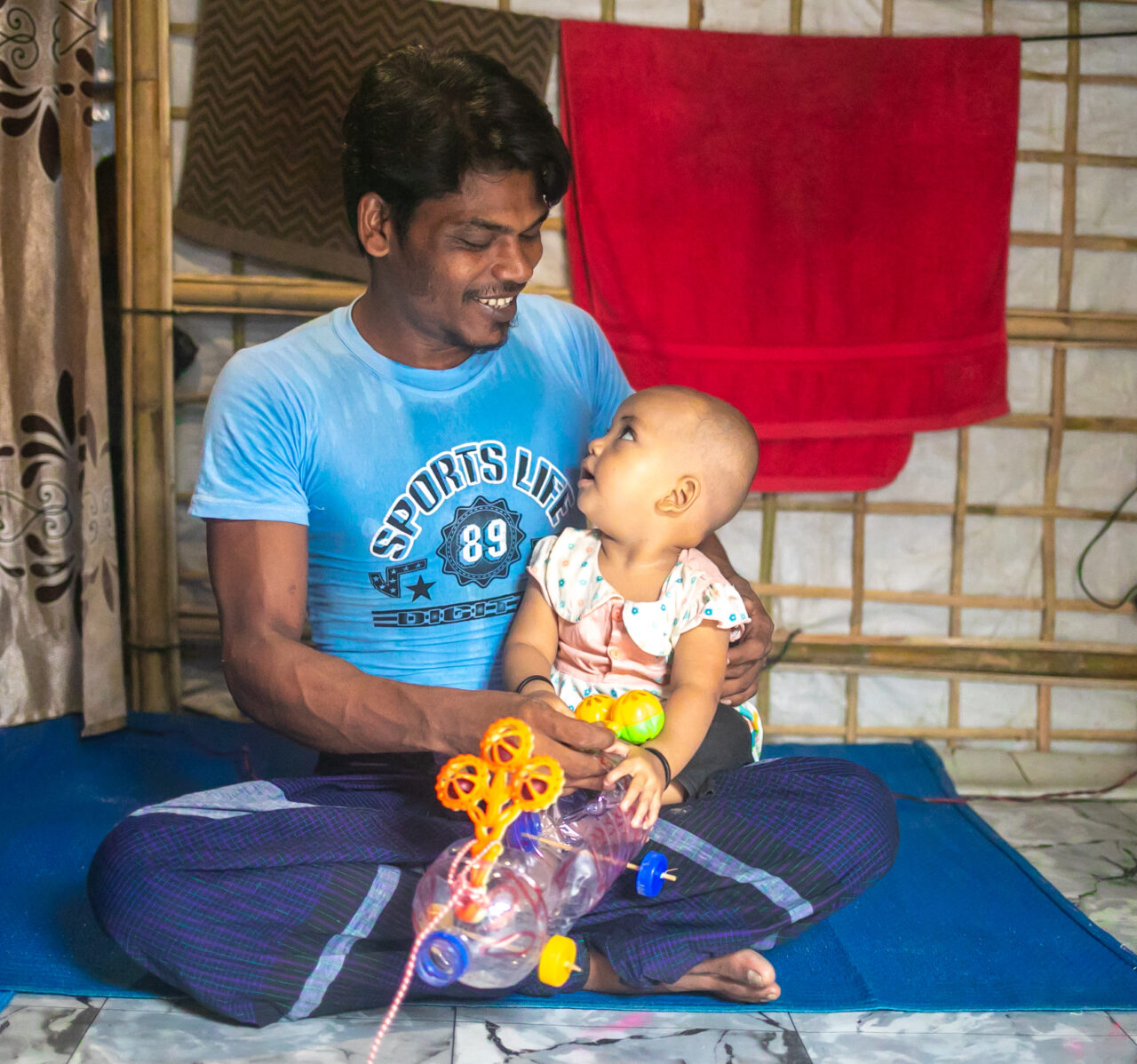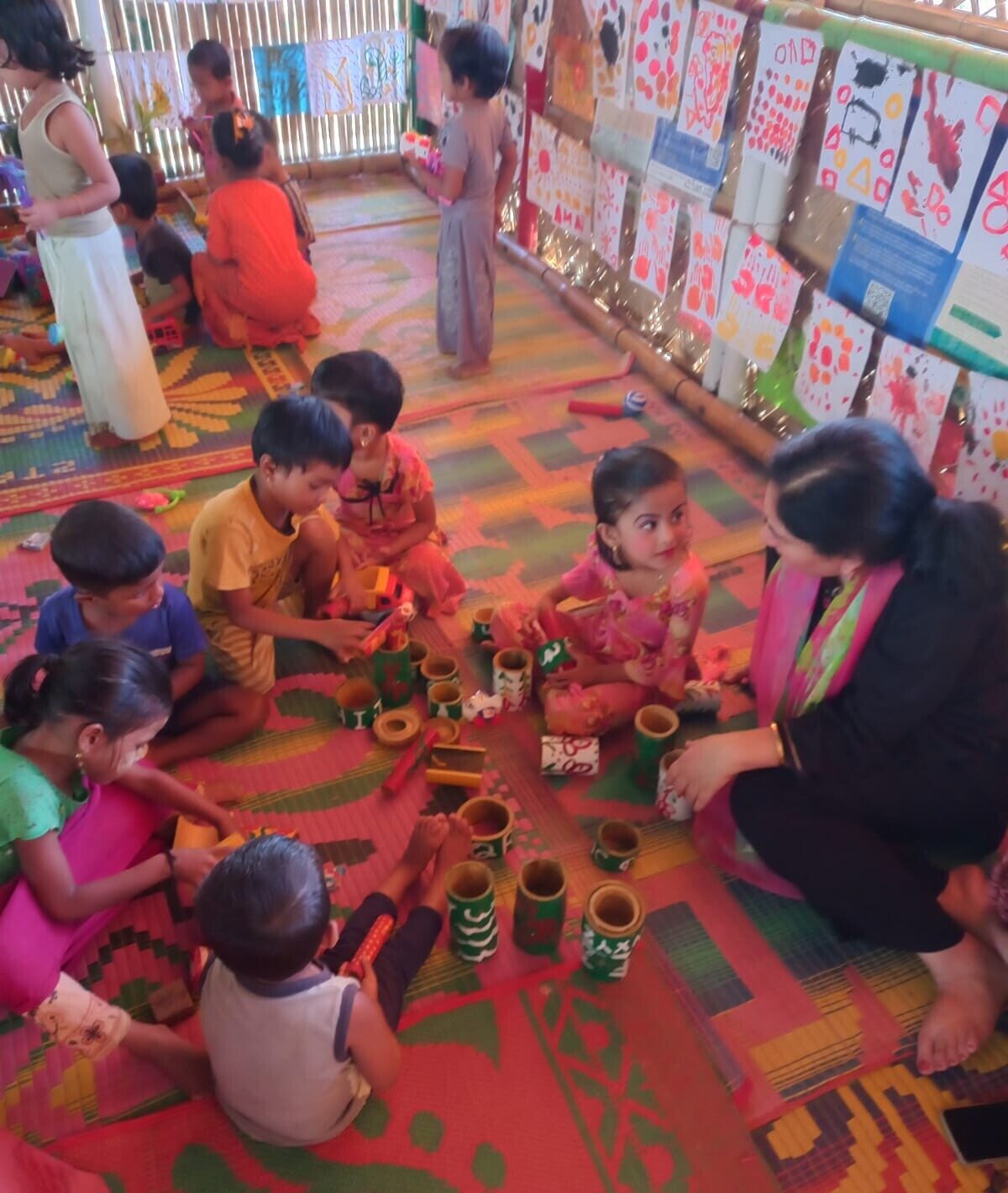Erum Mariam
Executive Director, BRAC Institute of Educational Development, Bangladesh
In what ways does parental play impact the safety and well-being of young children?
Research shows that when fathers play and engage with their children early on, it boosts the children’s security, language and math skills, social abilities, and emotional control.
Fathers at Play, Children Who Thrive
Hiro’s recent evaluation of the "Humanitarian PlayLab" program with BRAC in the refugee camp Cox’s Bazar, Bangladesh, showed that when fathers play and learn with their young children, it can help reduce violence against children.
The main findings were:
- Actively involving fathers in early play strengthens their caregiving and nurturing skills.
- Play builds bonds and reduces violence.
- Involving fathers early gave them “aha” moments about how babies learn and their own vital role in supporting development.
- Building programs from local realities and cultural norms increases acceptance and effectiveness.

Publications
Jad
Witty Monster, Sesame Street
How can educational media, such as a tailored version of Sesame Street, support the needs of displaced and refugee children?
An adapted version of Sesame Street for children in the Syrian refugee response region in the Middle East – evaluated by Hiro in a partnership with the International Rescue Committee, has reached over 25 million children.
Building Emotional Skills Through Educational Media
Educational media can help displaced and refugee children by teaching social-emotional skills at scale, like recognizing feelings and using simple coping strategies. Hiro led research on Ahlan Simsim, a Sesame Street version for children in the Syrian refugee response region, in partnership with the International Rescue Committee. The program improved children’s emotional skills, including expressing feelings in social situations.
It is now the fourth most popular children's TV program in the Middle East and has reached over 25 million children.
Publications
Alice Würmli
Senior Research Scientist and Director Research and Innovation at Global TIES for Children
How can we protect children from the lasting and intergenerational effects of conflict and displacement?
Cultivating resilience in refugee children and families across generations - through psychosocial support, community engagement, and multi-generational programming - can buffer against the long-term, and even intergenerational, developmental and health impacts of conflict and displacement.
Building Resilience in Children Affected by Conflict
Key research strategies highlighted in the Intergenerational Risk and Resilience of Rohingya in Displacement (iRRRd) study include:
- Resilience Building: Fostering resilience through play can enhance coping mechanisms and reduce the adverse impacts of trauma in children.
- Culturally Relevant Research: In-depth qualitative research can build new measures that not only honor and respect Rohingya culture, but allow for more precise assessment of the situation, the foundation of effective protective and promotive programs.
- Connecting Basic and Applied Research: Although studies on biological embedding of trauma may seem distant from the daily lives of the Rohingya community, participatory workshops use this science to develop practical ways to reach those most in need of support.
The study is led by Hiro and Alice Wuermli from NYU, together with Bangladeshi partners at the International Centre for Diarrhoeal Disease Research, Bangladesh (icddr,b).
